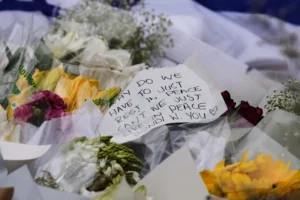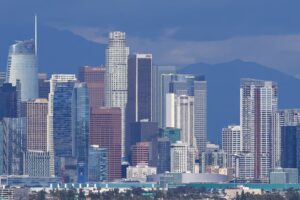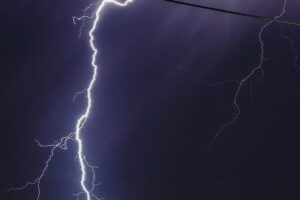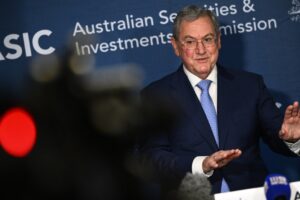
As Canada and the UK stipulated conditions for recognising Palestine at a September meeting of the United Nations, Albanese said Australia would not be swayed by that deadline, but by whether its own set of circumstances had been met.
“Once you make that declaration, you lose your capacity to negotiate and to influence outcomes to some extent. So, it will be based upon not whether a timeline is reached, but whether an objective is reached,” Albanese told the ABC’s 7.30.
“The UK have made a provisional statement if the peace talks are not advanced, and they have said they will recognise in September if that does not occur… [Carney] has made a decision, as the Prime Minister of Canada. We’ll make a decision as the Australian government, as a sovereign government, that it is in Australia’s national interest.”
Albanese also said he would not be swayed by the United States’ position. “I think there is an opportunity for the United States to play a leadership role here, for President Trump to play a role,” he said. “That, of course, will be a matter for them.”
Wong said on the ABC that she welcomed international momentum towards a two-state solution and laid out conditions that could lead recognition including regional commitments to Israeli security, the release of hostages and the demilitarisation of Palestine.
Credit: Matt Golding
“What we want out of it is something … which breaks the cycle of violence,” Wong said.
Labor has been under mounting pressure from rank-and-file members and parts of its caucus to join international counterparts and add to global momentum. Former frontbencher Ed Husic this week said there was “deep feeling” on the issue among his Labor colleagues, and argued there was a moral imperative for Australia to take immediate steps towards recognition.
At the same time, Albanese assured the Executive Council of Australian Jewry in parliament this week that recognition was not imminent. Co-chief executive Peter Wertheim said the prime minister had made two things clear.
“Firstly, Australia will make its own decision concerning the timing of recognition of a Palestinian state. Secondly, recognition must not simply be an empty gesture,” he said.
Loading
Zionist Federation of Australia president Jeremy Leibler welcomed Albanese’s comments that Australia “will not follow other nations in prematurely recognising a Palestinian state”.
Greens Senator Sarah Hanson-Young pushed Labor to follow the lead of other countries, although she emphasised her prime concern was condemning Israel over the humanitarian suffering in Gaza.
The federal opposition has cautioned that there should be no conversation about recognition while Hamas still held Israelis hostage.
Opposition frontbencher Julian Leeser on Thursday morning said Palestinian statehood should come at the end of a peace negotiation process, not at the start or during it. “I think what the government is doing here, and what some of the other foreign governments are doing here, is wrong,” he said on 2GB.
“This really is putting the cart before the horse, and it has never been Australia’s foreign policy tradition to recognise states before they come into existence.”
Canada’s Mark Carney and Australia’s Anthony Albanese at the G7 last month. Credit: Alex Ellinghausen
Canada’s decision to recognise Palestine at the United Nations General Assembly in September, announced on Thursday (AEST), was predicated on the Palestinian Authority committing to “much needed reform”, Carney said, including general elections in 2026 in which Hamas could play no part.
The UK on Wednesday (AEST) also declared it would recognise a Palestinian state in September unless Israel agreed to a ceasefire, a two-state solution, and an end to the humanitarian crisis in Gaza. Starmer’s decision came under sustained political pressure from his MPs. It followed French President Emmanuel Macron’s announcement last week.
Israel has criticised the push for recognition, with its foreign ministry rebuking Canada. “The change in the position of the Canadian government at this time is a reward for Hamas and harms the efforts to achieve a ceasefire in Gaza and a framework for the release of the hostages,” it said.





